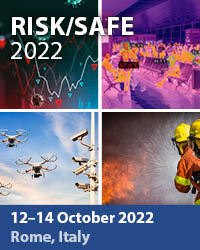Optimal Timing Of Wildfire Prevention Education
Price
Free (open access)
Transaction
Volume
137
Pages
10
Page Range
197 - 206
Published
2010
Size
518 kb
Paper DOI
10.2495/FIVA100181
Copyright
WIT Press
Author(s)
D. T. Butry, J. P. Prestemon & K. L. Abt
Abstract
Public outreach and wildfire education activities have been shown to limit the number of unintentional human-caused ignitions (i.e., ‘accidental’ wildfires). Such activities include the airing of public service announcements, visiting with homeowners in at-risk areas, distributing informative brochures and flyers, hosting of public forums (with presentations), and facilitating community sponsored neighborhood hazard assessments. By limiting the number of ignitions, prevention entirely avoids costs and losses related to fire suppression (initial attack) and property damage. In this paper, we show that the benefits of wildfire prevention education activities carried out in the State of Florida, USA, far outweigh their costs. We also report how the return on wildfire prevention education investment in that State varies—i.e., the effectiveness of these programs varies—with many exogenous factors, including weather, season, and recent wildfire history and fuels management activities. To illustrate how this effectiveness variation could be exploited to increase returns to money spent on prevention, we explore the optimal timing of wildfire prevention activities. Optimal timing of wildfire prevention education spending is defined as the spending allocation over time that yields the lowest wildfire-induced cost plus net value change to society. We find that, for Florida, the optimal (monthly) timing of prevention activities can be forecasted by exploiting the relationships between prevention effectiveness and fire weather measures, which vary predictably within the year. Keywords: fire economics, wildland-urban interface, hazard mitigation, wildfire prevention, wildfire education.
Keywords
fire economics, wildland-urban interface, hazard mitigation, wildfire prevention, wildfire education





